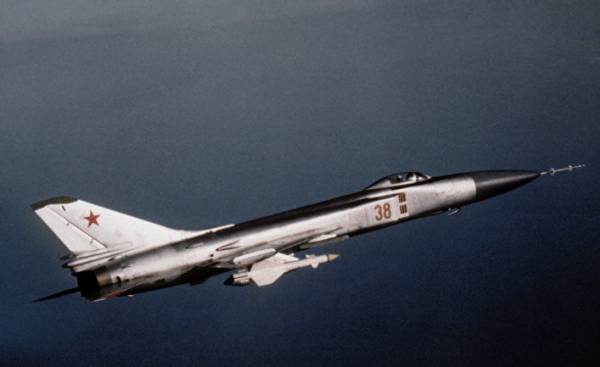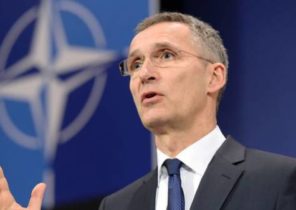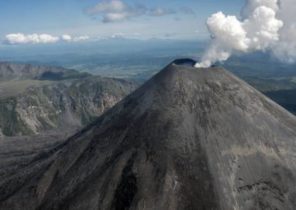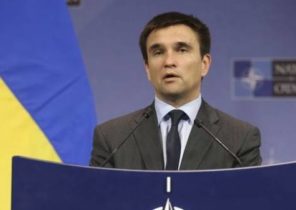
A Soviet interceptor su-15 “Boeing killer” is a compliment. The name conjures up a lively presentation about how a small plane into a battle with a giant American bomber b-52.
But in fact, the name “Boeing killer” due to the dubious military achievement of the su-15 that shot down two civilian aircraft of the Boeing company, including in 1983 a Korean airlines plane flying flight 007. The book under the title, “su-15 Boeing killer” (Sukhoi Su-15: The Boeing Killer), in 2015, has written one of the most prolific authors on the history of Soviet military aviation Yefim Gordon.
Su-15 emerged in the early 1960s, when Sukhoi design Bureau was in trouble. His engines single-engine fighter-interceptor su-9 and su-11 were unreliable. The command of the Soviet air defense forces wanted to twin-engined interceptors such as the Yak-28 and Tu-128, considering them more reliable. At the same time, the United States has adopted a long range b-52 bombers and developed high-rise car b-70 Valkyrie, capable of speeds of M=3.
Sukhoi proposed a twin-engine interceptor, equipped with more advanced radar and two guided missiles “air-air”. It could reach a maximum speed of 2 230 kilometers per hour. Like many of his Soviet predecessors, the su-15 was something like a manned rocket. The ground crew had to bring the aircraft sufficiently close to the target, so he could use the onboard radar and missiles.
The Soviets were afraid that they would have simultaneously to deal with slow high-altitude bombers that the interceptors could attack from behind, and with the fast bombers with a speed of M=2 (the American B-58 Hustler) what he writes in his book, Gordon. “Without a significant superiority in the speed of the interceptor never had a chance to hit such targets in the Dogon know in connection with high-speed goal it is to seize on a collision course. But against slower aircraft it was possible to apply both the first and the second tactic”. To hit high-altitude targets flying above the ceiling of the su-15, amounting to 18.5 kilometers, the aircraft was sharply to gain altitude, and then make the missile launch from the bottom.
“The military was not very happy with the characteristics of a released su-15,” notes Gordon. The plane had problems with the flight controls and engines. Another very significant drawback was the fact that his radar could not conduct the search in the lower hemisphere and to detect low-flying bombers of the new generation. However, in the period from 1965 to 1979 was built approximately 1 290 su-15, and they have become the main interceptor of the Soviet air defense. These machines complement a high-speed MiG-25, which were used to intercept bombers, which possessed a higher speed. Su-15 was removed from the armament of the Russian air defense in 1993, but few cars remain in the Ukrainian air force until 1996.
Su-15 was never involved in the fighting, like its fellow of the American F-106. But the predecessor of the F-106 interceptor the F-102 to war in Vietnam. But being the main fighter-interceptor during the cold war, the su-15 have participated in the interception of aircraft violating Soviet airspace. 18 Jul 1981 canadian transport aircraft CL-44 with the Argentine crew crossed the Iranian border and flew into Soviet territory. He was carrying Israeli arms to Iran, which at that time was at war with Iraq. Intercept CL-44 was carried out su-15 who submitted the offending signal to go to the landing. What happened next is still unclear. The pilot of the Soviet interceptor claimed that could not use missiles before the release of the offender from the USSR’s airspace, and therefore rammed the plane, and he fell to the ground. (However, the American aviation historian James Oberg (James Oberg) said that the Soviet pilot saw the goal, and then made up a story to justify).
But where did the nickname “Boeing killer”? 20 April 1978 a Korean airlines aircraft Boeing-707 that was flying from Paris to Seoul, fell into Soviet airspace near Murmansk. The interception of the liner was carried out su-15. The Soviets claimed that the b-707 made a reconnaissance flight and ignored the command to land. The South Koreans claimed that the plane was in Soviet airspace by accident, but Tips gladly pull the trigger. Whatever the causes, the pilot of the su-15 fired two missiles R-60, and one of them hit the target. South Korean pilot managed to land the plane on a frozen lake, but two people died.
The next incident was the most famous in the history of the su-15 Soviet air defense. September 1, 1983, flight 007 Korean airlines flying from Seoul to Tokyo, violated Soviet airspace over Sakhalin island near Japan. To intercept the airliner flew su-15, which fired several warning shots, but the Korean pilots did not notice them because the shells were not tracer. Before the release of b-747 of Soviet airspace, the pilots of the C-15 was ordered to destroy it. Two missiles shot down the airliner crashed, and all aboard passengers and crew members were killed (including one of the militant American Congressman who headed the John birch Society). The councils said that the flight of KAL 707 was on a scouting mission and ignored the order to go to land, but President Ronald Reagan condemned the incident, calling it a barbaric act of the Soviet.
Writing about the history of Soviet aviation Ilya Grinberg doubt that “Boeing killer” su-15 nickname Tips. “The Soviet aircraft did not have such nicknames, he said National Interest. — Your su Russian called gently: “Drying” or “Cracker””.
Unfortunately for the hapless su-15, he became famous for another reason. This car collided in 1968, the MiG-15, which flew cosmonaut Yuri Gagarin. The collision killed the first man cosmonaut in space.
However, to call the su-15 killer aircraft seems unfair. Civilian people were killed and other planes belonging to other countries. But we are never called “murderers of children” b-17, A-10 and Predator drones.
Guilty of no planes, and people.







